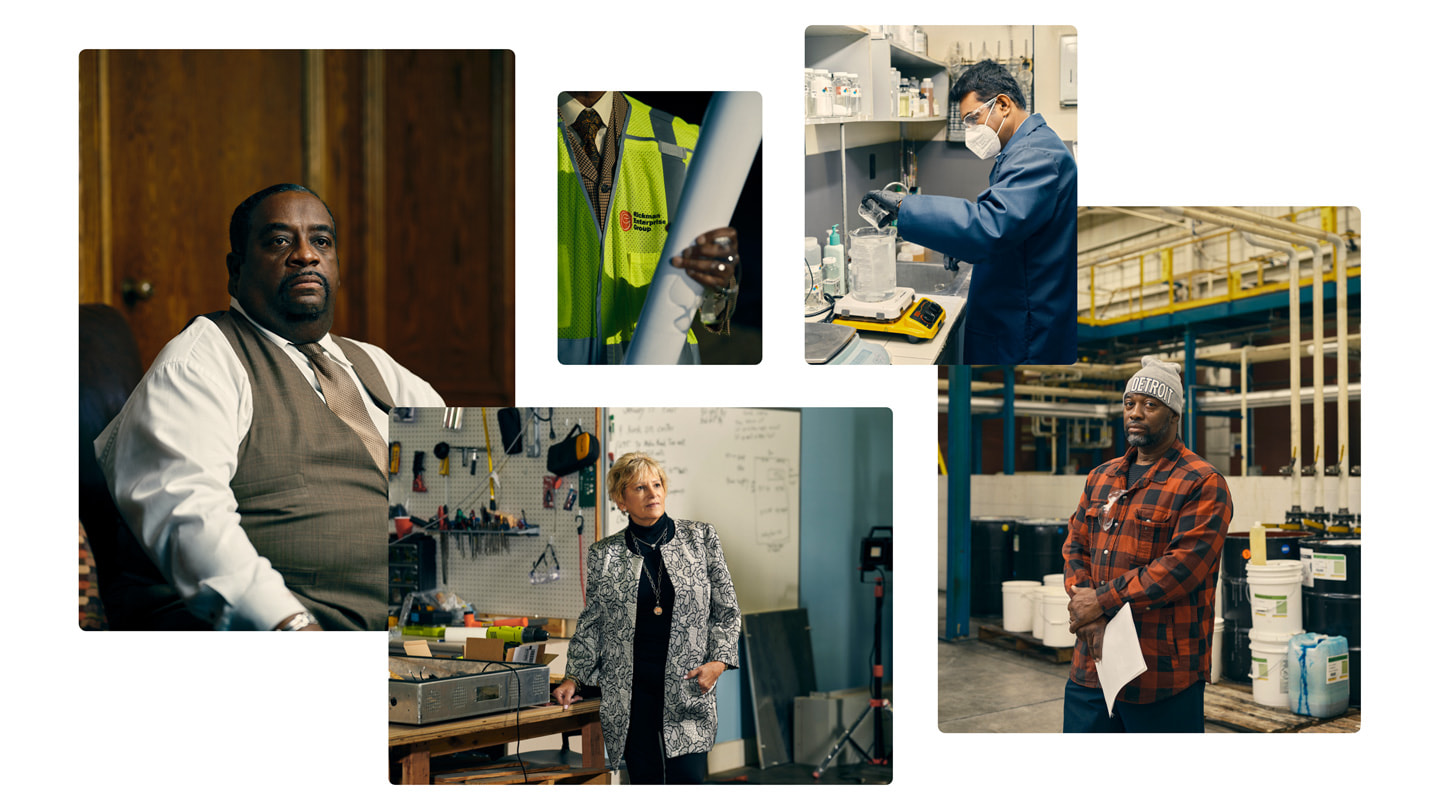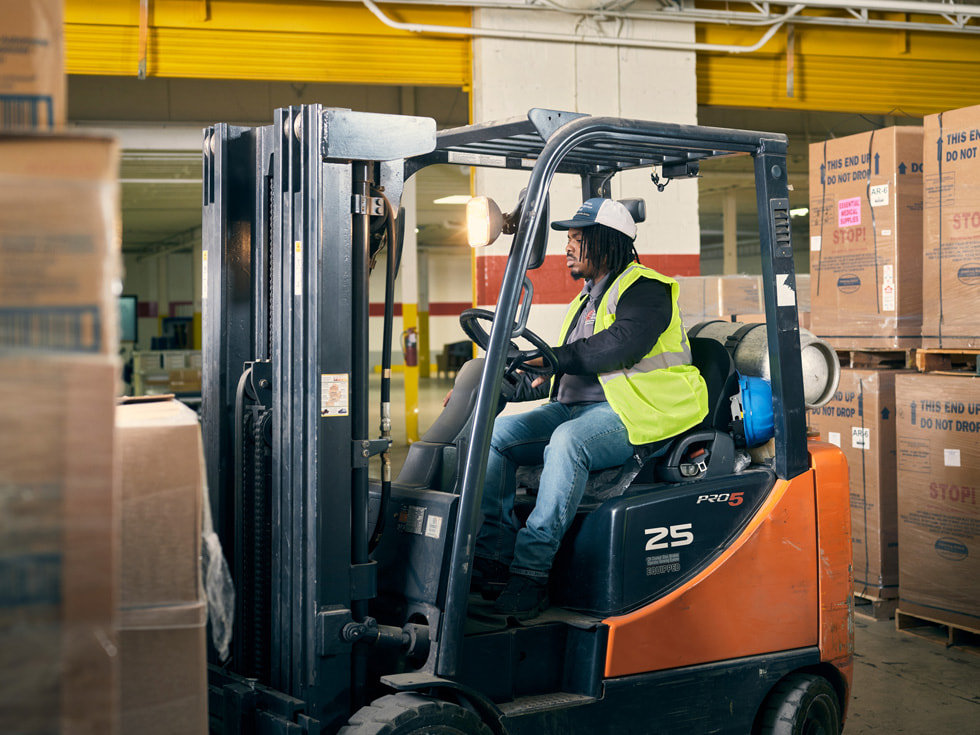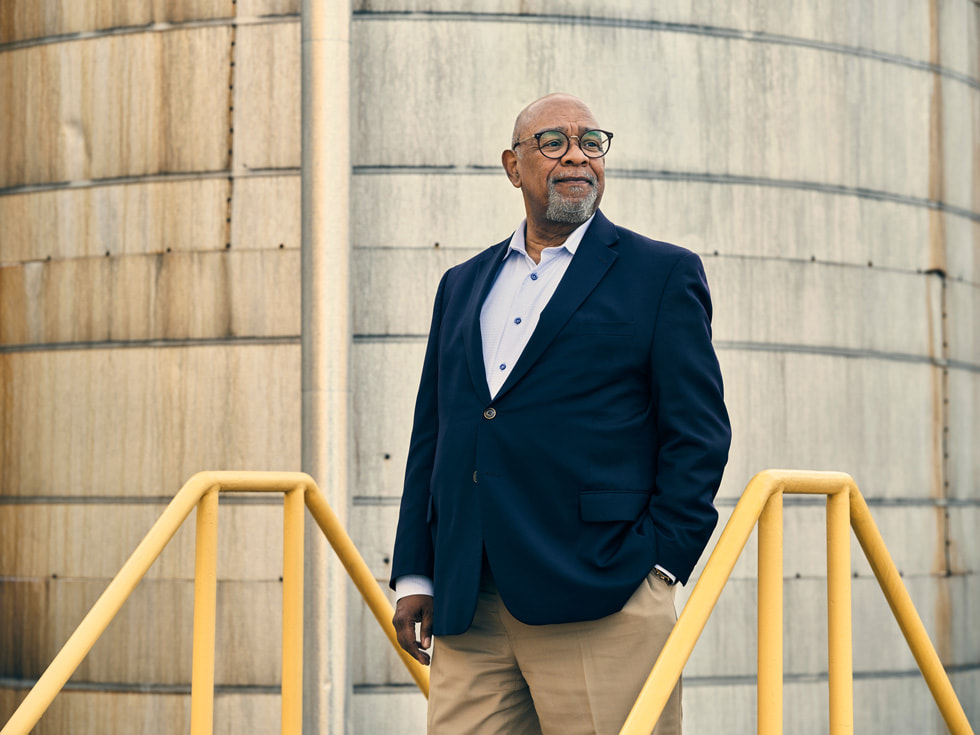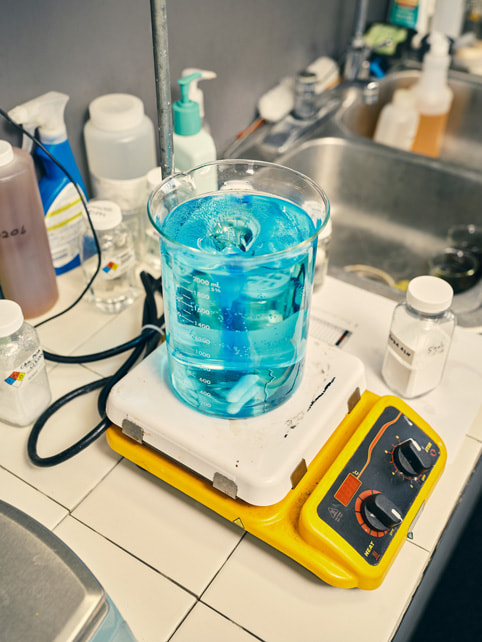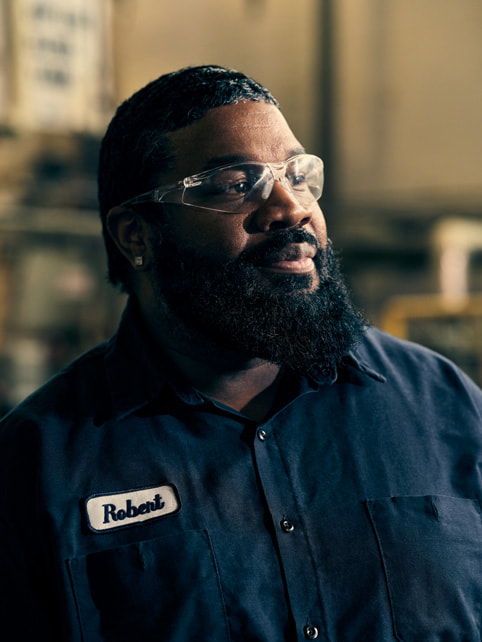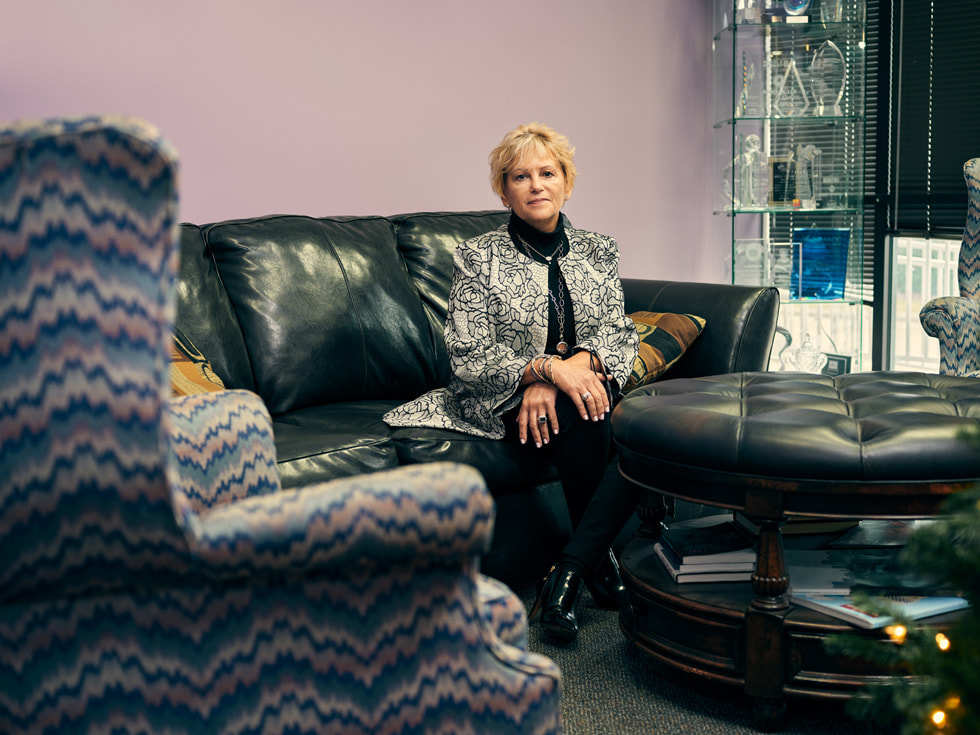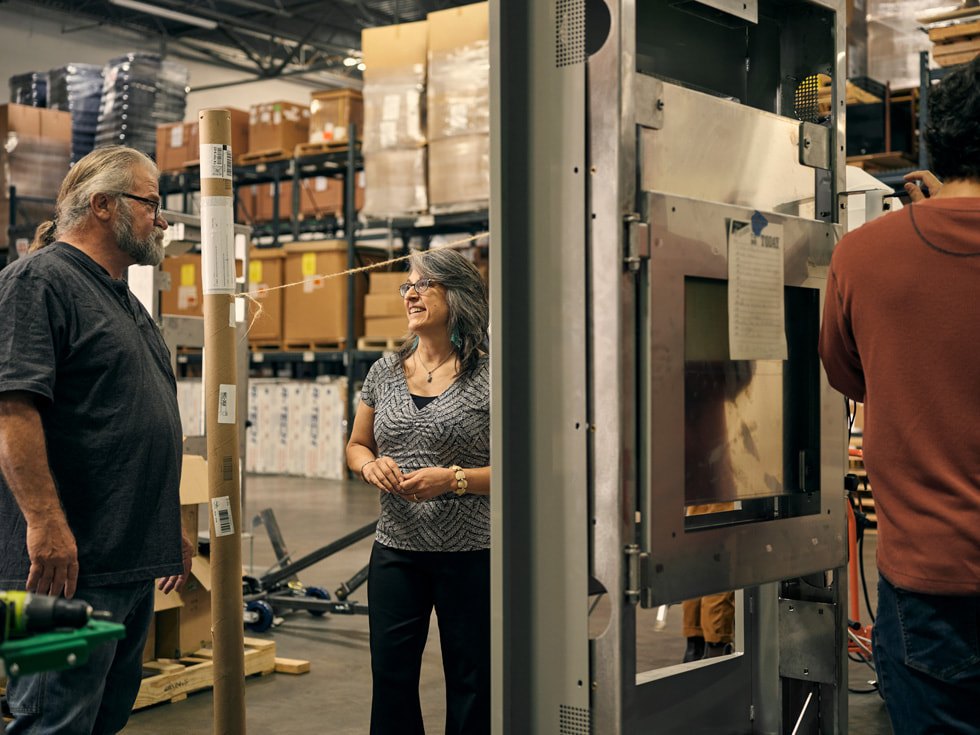FEATURE
March 15, 2022
Apple’s Impact Accelerator unlocks new opportunities for US businesses to speed environmental progress
Applications are open for its second Impact Accelerator class
Last fall, leaders of companies across the US participated in Apple’s inaugural Impact Accelerator — a three-month virtual program including customized training, along with access to Apple expert mentors and an expanding alumni community — to expand their opportunities within Apple’s supply chain. Launched in 2020 as part of Apple’s Racial Equity and Justice Initiative, the Impact Accelerator is designed to support equity and opportunity in the environmental sector for Black-, Hispanic/Latinx-, and Indigenous-owned businesses on the cutting edge of green technology and clean energy, and aims to combat systemic barriers to opportunity, while also advancing innovative solutions for the communities most impacted by climate change.
Following the program, Apple is working with several businesses from the Impact Accelerator’s first class — including Rickman Enterprise Group; Diversified Chemical Technologies, Inc.; Argent Associates; and the Oceti Sakowin Power Authority — as part of the company’s supply chain network. Applications for Apple’s second Impact Accelerator class are now open, and a new group of Black-, Hispanic/Latinx-, and Indigenous-owned businesses will have the same opportunity.
“We cannot build a greener economy without building a more just one, where communities most impacted by environmental harms lead us toward solutions,” says Lisa Jackson, vice president of Environment, Policy, and Social Initiatives. “Our Impact Accelerator models the approach we need — bringing bold, innovative, and diverse businesses together to speed progress to a carbon-neutral future.”
A Sense of Duty to His Community
For Roderick Rickman, chairman and CEO of Rickman Enterprise Group, applying to join Apple’s inaugural Impact Accelerator was an easy decision. He believes that everyone — citizens and corporations alike — share a social and physical responsibility in protecting the planet.
“Apple’s commitment to sustainability, its environmental commitment to our Earth, and its social responsibility to residents really excites and drives me to get involved,” Rickman says. “I’m so honored to be a part of the Impact Accelerator, and to be contributing to Apple’s ambitions of both environmental and social justice.”
A veteran-turned-environmental cleaning service provider to the automotive industry, Rickman has always been concerned about the impact corporations’ practices are having on the environment.
“I can remember back in the ’60s when car owners would change their own oil, and they would dispose of it in ways that were not kind to the earth,” Rickman recalls of his time growing up in Detroit, Michigan. “Today, that’s totally unheard of. As environmental concerns and issues evolved, we’ve always been sensitive toward the preservation of our environment.”
Born and raised in the Brewster-Douglass Housing Projects in Detroit, Rickman is the 11th of 12 children, and credits his large family for instilling a strong sense of pride, family values, and commitment to community. “It comes as second nature to me,” he says. “I’m committed to Detroit. It has had its challenges like most urban cities have, and I wanted to participate in its revitalization and return it to being a world-class city.”
Following participation in the first Impact Accelerator, Rickman Enterprise Group and Apple are exploring ways to infuse Rickman’s expertise in facility management, environmental waste management, and achieving zero waste-to-landfill for Apple’s facilities and products.
After several years serving in the US Army taught Rickman the value of teamwork and how to be proactive rather than reactive, he discovered a passion for leadership that he brought back to Rickman Enterprise Group in the way the company supports, trains, and takes care of its employees. It also instilled a sense of duty he believes business leaders have to their local communities.
“Environmental laws, regulations, and responsibilities change,” Rickman says. “As they change, we need to change with them and make sure that across the demographics of industries, we have common practice and common procedures as it relates to sustaining our Earth, our environment, and making sure everyone is responsible in the same way.”
An Opportunity to Add Value
In Detroit, a Great Lakes city where Karl C. Johnson Jr., president and chief financial officer of Diversified Chemical Technologies, Inc., says a tougher climate has always existed, and the effects of climate change are not always singular or easy to pinpoint. But since the city’s pinnacle as the automotive manufacturing leader in the world in the ’90s, neighborhoods are facing record flooding, disproportionate amounts of homelessness due to corporations moving their manufacturing facilities out of the city, and a lack of public transportation that would enable residents to explore job opportunities outside of the city limits.
“Detroit is no different than any other legacy Rust Belt city around the Great Lakes,” Johnson says. “I grew up in Cleveland seeing the wealth of opportunity of manufacturing jobs, and what happened when they left. Whatever time I have left — in a professional sense — I want to be focused on creating jobs because jobs create opportunity, and opportunity allows people to make choices.”
Diversified Chemical’s expertise in adhesives — its customers include 32 Fortune 500 companies, such as Kellogg’s, Nestlé, Colgate, Mondelēz, and several other consumer packaged goods companies — and its dedication to safer chemistry align closely with the goals of the Impact Accelerator.
Diversified Chemical partnered with its Impact Accelerator mentor to organize and formalize their safer chemistry initiative, and determine a path forward: developing entirely new adhesives for the consumer electronics industry that could potentially further increase the repairability and recyclability of products like those Apple manufactures, as well as a new line of industrial parts cleaners for the electronics sector that are safer, solvent-free, and ultimately better for the environment.
“There’s a finite amount of resources on this planet, and industry has not been as innovative as it could have been to help preserve some of those resources. Apple’s focus on safer chemistry as one of the many tenets of the Impact Accelerator gives us an opportunity to add value and become a more strategic partner to Apple and our customer base by innovating around our practices of sustainability,” Johnson says. “It has been a privilege and a great honor to participate in the inaugural class. We are proud to be an example of how large and smaller companies can work together for a common goal that has both a social imperative, and represents a sound, innovative, good business model.”
From left to right: (1) The Impact Accelerator’s goal for safer chemistry attracted Diversified Chemical to the program. (2) Diversified Chemical is committed to creating jobs and opportunities for the people of Detroit.
From top to bottom: (1) The Impact Accelerator’s goal for safer chemistry attracted Diversified Chemical to the program. (2) Diversified Chemical is committed to creating jobs and opportunities for the people of Detroit.
An Impact Where We Live and Work
Two thousand miles away, in Plano, Texas, Argent Associates’ president and CEO Betty Manetta also recognized an opportunity to become a strategic partner for its customers in various sectors — both in the technical and energy efficiency platforms it provides, as well as its focus on sustainability and diversity and inclusion.
For Manetta, the Impact Accelerator was an invaluable experience in how small businesses can grow beyond just sales, but for its people and the future of the company. Since participating in the class, Argent Associates has started working with Apple on equipment for the company’s data centers, which run on 100 percent renewable energy.
“As a Latina businesswoman in a very male-dominated industry, I feel so blessed to be part of this program,” Manetta says. “Apple is creating that funnel for the next generation of companies that they can help grow and scale.”
After immigrating to Elizabeth, New Jersey, from Argentina with her parents in the ’60s, and attending college at night while working for the Western Electric branch of AT&T, Manetta recognized that she could do more for the industry from the outside, and decided to start her own company.
“After spending 20 years in corporate America, both in international and local business, I needed to see how I can help fill the gaps I saw in the supply chain,” Manetta says. “I knew what was lacking, and as a Hispanic, woman-owned business, I could provide support that would increase revenue, cut logistics costs, and provide value added services while enhancing our Latinx business community.”
Since its early days as a value-added reseller of networking technologies, the company has evolved into other areas of expertise, including network installation for 5G wireless, engineering, equipment analysis, and turn-up and testing of various technologies and platforms. With all its logistics know-how, Manetta saw a rising need for reverse logistics as well: helping companies recycle and repurpose metals and increasingly obsolete technology from their consumer products and network equipment.
Argent has pioneered an AI-based, real-time data collection process at the edge of the network to assess energy consumption, and areas for reduction for its users. Everything from vulnerabilities, over usage, peak demands, and anomalies can be monitored using the company’s proprietary Aire Edge system.
“We fix gaps to bring savings to the supply chain,” Manetta explains. “Our vision is to create a self-sustaining ecosystem that benefits our communities and saves the environment. By creating an ecosystem that incorporates other diverse companies, we are making an impact where we work and live.”
As Ray Moya, chief operating officer and chief technology officer of Argent, describes, their commitment to diversity is a necessity for local communities, the businesses that operate in them, and the larger corporations developing next-generation technologies in the industry.
“We made a decision that we’re going to create the next generation of Black and Hispanic wireless engineers, network engineers, and installers,” Moya says. “We’re proud that we have a legacy of young professionals who are minorities that will one day become the leaders of our company.”
With operations spanning from Texas to New Jersey, New York, Michigan, Georgia, North Carolina, and Florida, Manetta and Moya are furthering their reach and impact across local communities. Through partnerships with high schools, including the Harmony School of Innovation in Texas and the Synergy School of Tomorrow in Florida, Argent is heavily committed to presenting young people in underrepresented communities to new opportunities.
“We want to show young people that there are lots of opportunities in the field of technology and innovation,” Manetta says. “Local communities are the growth engine for most small businesses, and that is the growth engine of our economy. If we don’t invest in our community, we’ll never grow out of the issues that we’re having today.”
To learn more about Apple’s Impact Accelerator program, click here.
Media
-
Text of this article
-
Images in this article
